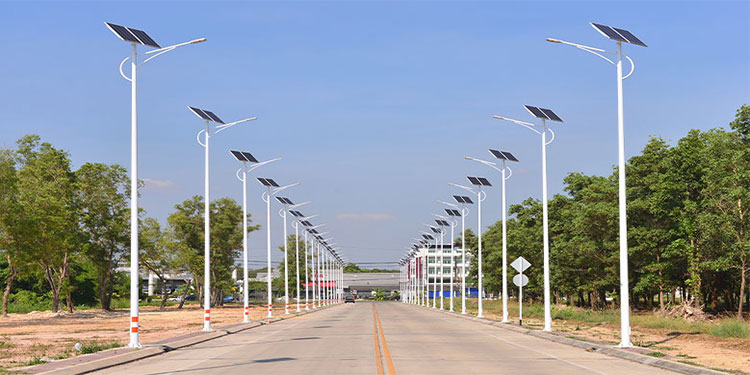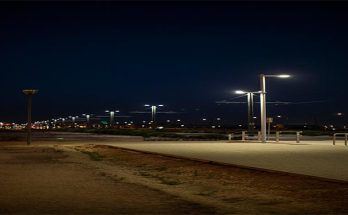
The newest city in Africa’s sub-Saharan region to implement solar street lighting for financial and ecological reasons is Jinja, Uganda. The demand for effective, sustainable lighting solutions has resulted in a significant change in the African industry towards solar LED street lights.
Africa is a great place to capture solar energy because of its reputation for having an abundance of sunshine. Nonetheless, a large number of African nations continue to primarily rely on conventional energy sources, which drives up energy prices and pollutes the environment. Solar LED street lights have emerged as a practical answer as public awareness of the need to switch to alternative sources of energy has grown in recent years.
Compared to conventional street lighting systems, solar LED street lights have a number of advantages. First of all, they run on solar energy, which is abundant, clean and sustainable in Africa. This lowers energy expenses and increases energy independence by doing away with the requirement for pricey and unstable grid connections. Furthermore, a greater percentage of solar energy can be converted into useable light by solar LED street lights due to their high efficiency. As a result, there is improved roadway visibility and safety due to brighter, more uniform illumination.
Solar LED street lights offer several benefits over traditional street lighting systems. First of all, they are powered by solar energy, which is plentiful, sustainable and clean in Africa. By eliminating the need for costly and erratic grid connections, this reduces energy costs and boosts energy independence. Furthermore, because solar LED street lights are so efficient, a higher proportion of solar energy may be transformed into usable light. Better visibility and safety on the roads are the consequence of brighter, more consistent lighting.
The administration and local community of Jinja City, Uganda, have enthusiastically embraced the usage of solar LED street lighting. In addition to increasing safety and visibility, installing solar streetlights additionally enhances the city’s overall attractiveness. Now that streets are well-lit, there is a sense of security and a boost to overnight business. Additionally, by using less energy, the city can save money that can be put towards other development initiatives.
The enormous potential of solar lighting solutions in the African market is demonstrated by the success of Jinja’s solar LED street lights. Demand for these effective, eco-friendly street lighting systems is predicted to rise as more cities come to realise the advantages of solar streetlights. Manufacturers and producers of solar LED street lights now have the chance to join the African market and support the sustainable development goals of the country.
In conclusion, the African market is seeing an increase in demand for solar LED streetlights. Africa is a perfect market for LED lights due to its abundance of sunshine and need for sustainable energy solutions. The use of solar-powered LED street lights in Jinja, Uganda, exemplifies the financial and ecological advantages that these lights may offer. The market for solar LED street lights is anticipated to grow as more African towns install them, presenting chances for suppliers and manufacturers in the renewable energy industry.

